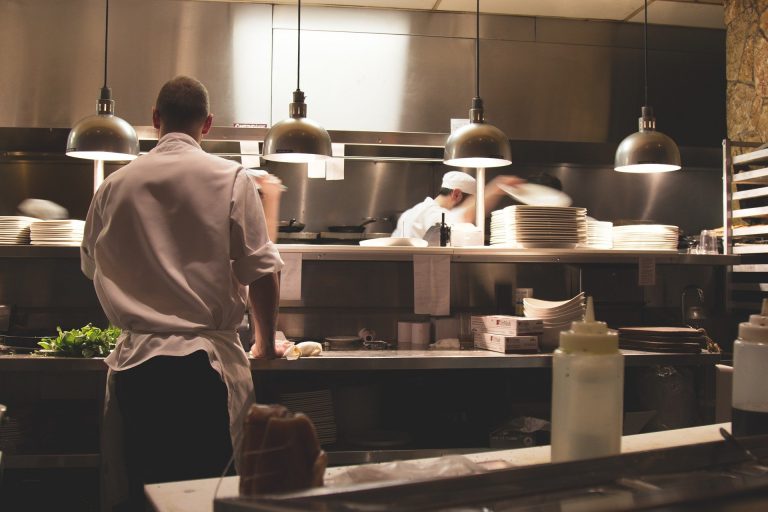Almost one-third of California restaurants have permanently shut down due to lockdown measures during the Coronavirus Disease 2019 (COVID-19) pandemic, according to the state Senate’s Special Committee on Pandemic Emergency Response hearing held on May 18.
A briefing paper on the meeting stated that almost 1.4 million workers were employed in the restaurant industry prior to the pandemic. By March 2020, between 900,000 to 1 million of these workers had either been laid off or furloughed. Nationwide, the industry lost 240 billion dollars in sales last year.
“While the full impact of the pandemic remains to be seen, as many as 30% of restaurants in California are estimated to have permanently closed, and the viability of an equivalent share remains uncertain,” according to the briefing paper.
Kevin McCarney, founder and chief executive officer of Southern California’s Poquito Mas restaurant, told the committee that the dining industry could take two or three years to recover. Restaurateurs are attempting to recoup losses while continuing to pay fixed costs such as insurance and rent.
“It’s not a given that we’re going to survive… We’re all digging out from so much the past 15 months,” Laurie Thomas, executive director of the Golden Gate Restaurant Association and owner of two popular restaurants, said to AP.
Success
You are now signed up for our newsletter
Success
Check your email to complete sign up
She also expressed fears that when the state reopens on June 15, restaurants may only be allowed to cater to vaccinated customers. This would force her staff to check vaccination cards and become the “new ID police,” a role Laurie says neither she nor others could handle.
At the hearing, many witnesses expressed frustrations about the haphazard manner in which the state implemented lockdown measures. Many restaurants had to abruptly shut down without enough time to distribute stocked food supplies or gradually ramp down employment.
A recent report from the Federal Reserve Bank of New York revealed that many small businesses in the services sector that shut down due to the pandemic are unlikely to reopen.
“The data reveal that 35 percent of businesses that were active prior to the pandemic are still closed and that most have been inactive for twenty weeks or longer. We estimate that each additional week of being closed reduces the probability that a business reopens by 2 percentage points,” the report stated.
Worker shortage
The senate committee meeting also highlighted the issue of labor shortages in the restaurant industry. The briefing paper stated that many restaurants have “sparse staff and are struggling to meet their current allowable capacities.”
Data from the Employment Development Departments indicates that the statewide restaurant labor force in March 2021 was down 26 percent compared to March 2020.
“Potential factors contributing to the shortage may include unemployment and federal stimulus benefits, health, and safety concerns about working during the pandemic while vaccine efforts are still ongoing, and a desire for more stable career paths,” states the briefing paper.
Mark Owens, the owner of USA Insulation and a trucking company in Indiana, ran 150 job advertisements between December 2020 and Feb. 15 of this year. Only three people showed up for interviews, and they all wanted to obtain proof of a job search so that they could receive government benefits, reported The Epoch Times. Candidates who said they wanted the job never showed up. “We couldn’t compete with the unemployment [benefits],” Owen said.
In March 2020, the Trump administration enacted the CARES Act, which gave people $600 weekly benefits in addition to regular unemployment insurance benefits. When the supplemental income expired in July 2020, the Trump administration authorized $300 per week in payments. Then, the Biden administration passed the 1.9 trillion dollar stimulus plan and extended the weekly benefit of $300 to September of this year.
According to a report by American Action Forum, “37 percent of workers would make more on unemployment under a $300 federal benefit than at work.” In an interview with QSR, Carl Howard, CEO of restaurant chain Fazoli’s, said that the $300 weekly unemployment boost was causing labor pool problems, affecting restaurants and entire supply chains.
Distribution companies are struggling to find drivers due to the unfavorable hours, and some suppliers have raised prices as a result. “If I was a kid and I didn’t really have a career path, and I’m 22, and I’m working at Fazoli’s where I’m trying to figure it out, and I’m making all this money to stay at home, I’m playing PlayStation till four o’clock in the morning… I’m not going back to work. Are you kidding me?” he said to QSR.
At the Senate hearing, Matthew Sutton, California Restaurant Association senior vice president for government affairs and public policy, suggested that an incentive program be created to encourage employees to return to work.
















